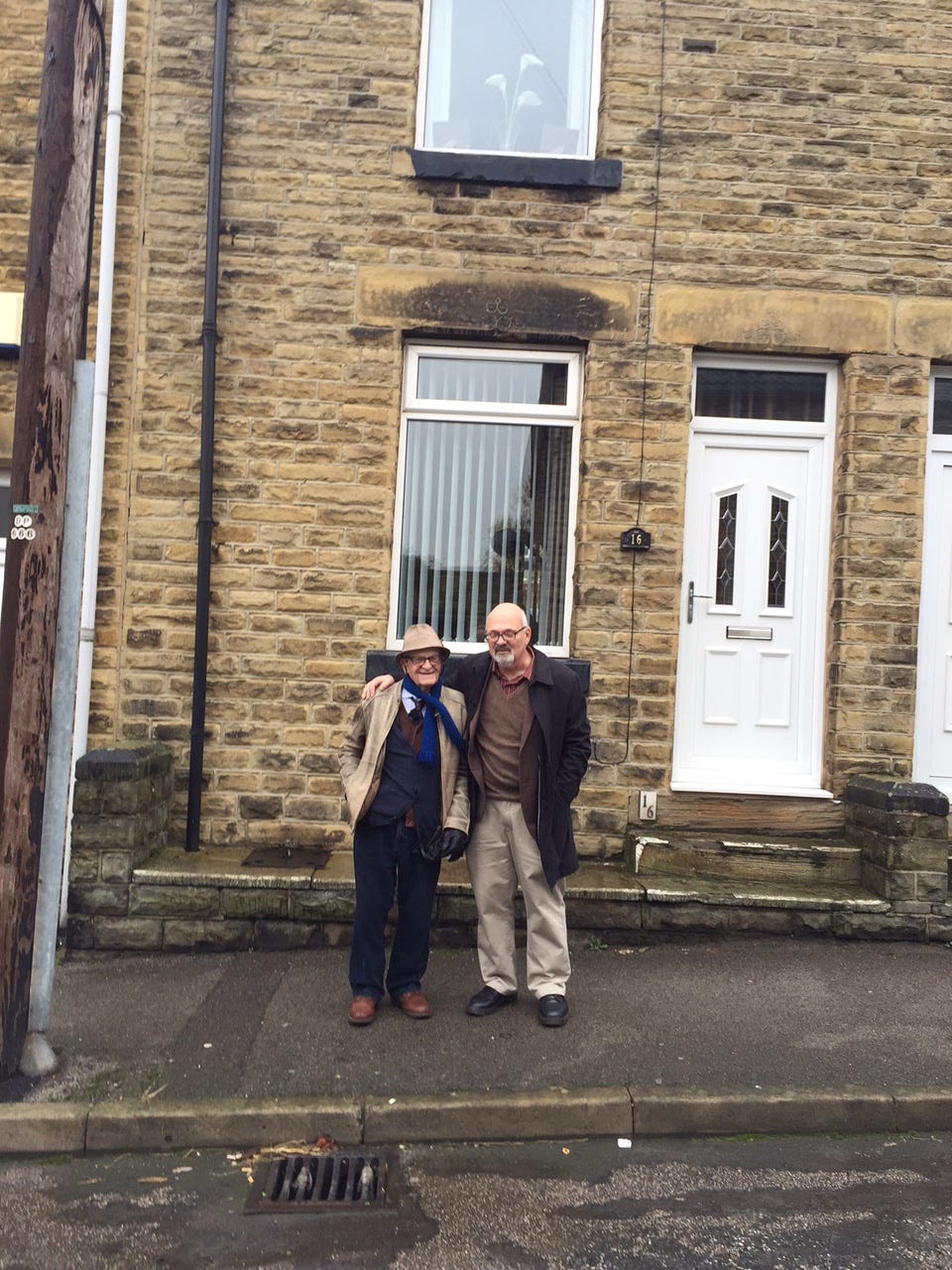My Father's morbid Hobby
I wrote this essay for Toronto’s Globe and Mail eleven years ago. It explains my dad’s first steps into becoming Harry’s Last Stand. When I wrote this I had no idea where my journey with my dad was to take us. But, instinctively I knew it was going to be a hell of a ride. I think it was a brilliant odyssey that was well worth the pain, travail and bitter outcome.
At 87, my father doesn’t receive a lot of mail any more. Besides bank statements and junk mail, the only correspondence he gets is from the dead.
Over the past several years, he has ordered the death certificates of his long-deceased ancestors from England, hoping that their place of death and manner of departure could unravel the secrets to his family’s history.
My father began this ramble into the past when my mother died 10 years ago, leaving him to a singular and lonely present tense. His glace backward became more acute last year when he suffered a loss every parent dreads and fears, that of his middle son, who died tragically at 50.
Over time, my father has collected a compendium of deaths, from natural causes to murder, in his family. With each new certificate, he completed the story of his ancestors’ trajectory on this planet. The demise of every relative was just as important as their birth and their life in between.
It has been an unsettling occupation for his golden years. Rummaging through his relatives’ lives has disturbed my father’s long-held beliefs about his grandparents, his sister and his father. The story my father once told of his forebears turns out to be more gruesome and mean-spirited than even he believed.
For most of my father’s adult life, his early childhood memories were buried deep in his subconscious, told in terse anecdotes about a wicked mother and a weak father. Death has seeped up from the crypt, so to speak, and compelled him to re-evaluate his kin.
My father was almost 4 when his eldest sister died from spinal tuberculosis. His sepia-toned memory of her runs like a short film loop from the early days of cinema, depicting a disabled and silent sister wasting away in the front parlour.
My father received her death certificate, a clinical form revealing the circumstances of her passing, the witness and location. Learning where she died picked open a scab my father had long believed healed.
In 1926, his sister succumbed to her disease in a local poorhouse because his parents’ poverty was so rank, they could not afford a hospital. She died in a drab Victorian building erected to imprison the poor and those with communicable diseases. The world was a cruel and backward place for the destitute.
Even more surprising, my father learned from his grandfather’s death certificate that he was a man of means and prosperity. It affirmed the stories told to him as a boy that his father and mother had been cast out by unscrupulous relatives and left without any social safety network.
With every death certificate my father completed the story of an almost-forgotten family member. My father discovered a cousin, many times removed, who died in Broadmoor hospital in the section designated for the criminally insane. She had murdered her infant son during the Great War, when she succumbed to mental illness and war propaganda that led her diseased mind to believe that Germans lurked in the shadows, hiding in the shrubbery and underneath her bed, ready to strike her family down.
After more than 60 years, my father was reunited with his dad when he received his death certificate. Poverty without remorse separated my father from his own dad, who was abandoned by society and his wife when he became infirm and too ill to earn his keep and feed his kin.
When he was 8, my father saw his dad leave one day and be replaced by a man his mother thought might be able to keep cold and hunger outside their front door.
In unearthing his dad’s death certificate, my father discovered that he died in 1943 at the age of 76. The certificate confirmed that he had died a pauper and there was no one to mourn his passing. He was buried in a common grave with other forgotten men from the Depression who, whatever their dreams, hopes or desires, were swept away by an earthquake of greed, financial blindness and government stupidity.
After having amassed all these death certificates, my father was able to stitch together a history of his tribe and find some closure to the nightmares that haunted him. He is aware that one day in the not-too-distant future, his end, like his beginning, will be reduced to a government document locked in a filing cabinet in some anonymous catacomb. But until that day comes, he will keep on striving through his own triumphs and tragedies while casting a backward glance to those relatives and events that formed his youth and molded his character.
The past was unspeakably cruel to my father, but while some might turn that pain into rancour, my father chose an alternative route. He built a family that although greatly imperfect never wanted for love or financial stability.



